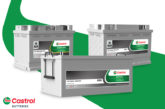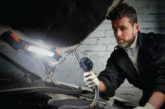Neil Pattemore reports on new threats to the traditional independent garage business model, and how trends in ‘mobility’ might affect the way in which your business will have to operate in the future.
Anyone involved in today’s aftermarket will be fully aware of how much has changed when it comes to the technology in today’s vehicles and how this is impacting the ability to repair profitably.
This challenge increases daily, and the need to keep abreast of new technologies and the associated training and equipment needed to diagnose and repair these vehicles will probably be the cause of some sleepless nights for many workshop owners. If you do not invest wisely and sufficiently, then there is the risk of starting down the slippery slope where your declining profitability will not allow the investment needed to invest in the resources needed.
Traditionally, independent workshops have advertised their services in their local area and then a driver either telephones or visits the workshop with a request to service their vehicle, or to diagnose a problem and repair it. Once the job is started, the ‘cascade’ leads to obtaining the technical information needed to conduct the work on the vehicle, ordering any replacement parts and then fitting them. Simples! (as they say).
This has been the basis of the aftermarket business model for a significant time. However, this is beginning to change, and the rate of change is increasing too – vehicles are acquired by private individuals or businesses and these vehicles are serviced and maintained by either the main dealer or an independent workshop. Generally, there are choices of not only the workshop locations but also the different labour rates and the choice of spare parts that are used.
Rather worryingly, the future is now becoming much more about ‘mobility’ and ‘mobility services’, and this will fundamentally impact the existing ‘repair process’ business model. This is already happening and is influenced by a number of different factors. The real revolution, however, comes when you consider the increasing rate of change of ownership of the vehicle itself.
The younger generations ‘Y’ and ‘Z’ see leasing or renting vehicles as being preferable to buying one, and therefore a whole new range of ‘mobility services’ is being conceived – which will exponentially increase as fully autonomous vehicles are introduced. This means that the vehicle owner changes from being the individual to being a corporate organisation or even remains the vehicle manufacturers themselves, which no longer sell cars, but effectively offer them on a ‘pay by use’ basis.
This is fundamentaly changing the way that servicing and repairing the vehicle is taking place, which in turn changes the business model of the independent workshop.
Corporate vehicle owners with large vehicle fleets will want to decide where their vehicles are being serviced and maintained and will expect to be able to negotiate low prices accordingly. However, this may expand into what parts are used and who supplies them. At best this creates a negative impact on your profitability, but it may also encroach on other aspects of your business and the independence of how you run it.
There may be heightened expectations of specific levels of both technical and management competence, requiring business standards and management processes that allow key elements of your business to be monitored. Corporate organisations may also expect a centralised contact and administration function, which, as an individual independent workshop, will be difficult to provide. A further consideration may be that if the vehicle manufacturer remains the vehicle owner, then it may also require that you handle any warranty work – and this may be at the manufacturer’s lower hourly warranty rates.
The adage of ‘together we stand and divided we fall’ starts to ring true. Indeed, there may be safety in numbers, but will you still be in control of your business if you join forces with another organisation?
You would need to consider the structure and strategy of any ‘alliance’ that you could join, as you need much more than just a garage scheme that is little more than a marketing name that is linked to the promotion of a product. You will need a business- orientated approach where negotiations can be conducted on behalf of the organisation’s members, with centrally-coordinated administration functions, such as booking and invoicing systems, but where you still retain the greatest flexibility and control over your own business.
I would not propose any specific organisations, as you need to make your own investigations and assessments, based on your own circumstances, but there are existing organisations that can fulfil some or all of the above requirements and I am sure that new ones will be created as the market changes and develops. Ultimately, as these new ‘mobility services’ become part of vehicle ownership models, key elements of your business are likely to be heavily influenced by the requirements of these corporate vehicle owner organisations. This will also impact main dealers, which may also become part of the independent aftermarket as vehicle manufacturers adapt to these new mobility services and change their vehicle supply routes. This means that independent garages will still be needed – especially with autonomous vehicles that need to be repaired close to where they are located, but the most significant impact will be the squeeze on your hourly rates and spare parts margins.
There will also be changes to the way that you may have to operate with increased demands for higher levels of technical, management and reporting competencies. We are just beginning to see some of these changes coming into the aftermarket, as evidenced by PSA Group’s Euro Repar brand, which is establishing a network of 600 independent workshops, so one thing is certain: tomorrow’s aftermarket will be very different to today’s and it is never too early to start thinking about how you will remain in control of your own business.










